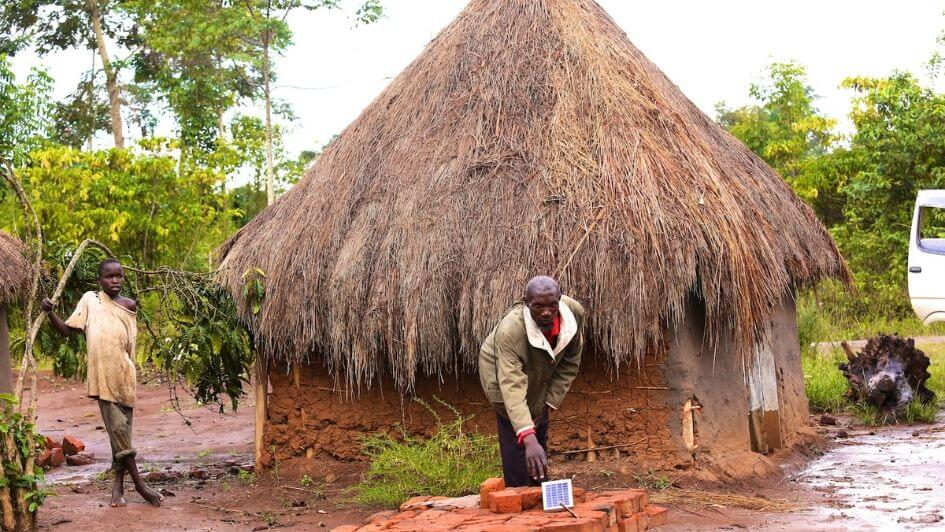Today, French President Emmanuel Macron will host a Summit for a new global financing pact in Paris. Over 100 heads of state, policymakers, and international organizations will convene to discuss financing solutions to respond to global crises, including climate change, development, and biodiversity loss.
It is hoped the summit will build on the recommendations of the Bridgetown Initiative, an initiative spearheaded by Mia Mottley, the Prime Minister of Barbados. Bridgetown aims to reform the world’s main financial institutions, namely the World Bank and the International Monetary Fund, to make them better able to deliver on the crises facing the world and to respond to the needs of developing nations, including universal access to energy. The Vulnerable Twenty (V20) Group of Ministers of Finance of the Climate Vulnerable Forum and African Ministers of Finance, Planning and Economic Development have also urged a reform of the international financial institutions to align investment with climate needs and goals.
“Operating within a planetary climate emergency, we expect the rewiring of the global financial system to happen as soon as possible within the current decade,” stated the V20 group in April 2023.
How the Paris Summit plays out is anyone’s guess. While leaders from the Global South are likely to be in attendance in the French capital — including Kenya’s President William Ruto, Brazil’s President Lula, the Chinese premier Li Qiang , and Mottley — G7 leaders are set to be thinner on the ground. Macron, with the German Chancellor Olaf Scholz, will lead the debate, while US President Joe Biden and India’s Prime Minister Narendra Modi are not expected to put in an appearance. The US will be represented by Treasury Secretary Janet Yellen, while the UK Prime Minister has opted to send International Development Minister Andrew Mitchell.
If the global financial system is genuinely to deliver for all, including the world’s poorest, leaders need to move from “complex broad agreements and focus on the specifics,” argues Kristina Skierka, the CEO of Power for All, a global campaign to end energy poverty by accelerating the adoption of renewables. “If these summits don’t find solutions that work for people on the ground, there’s no point to them.”
Millions of people in developing countries still don’t have access to energy. Moving countries away from fossil fuels and making them more resilient to the ever-increasing extreme weather shocks caused by climate change are vital objectives. Often forgotten, however, is the importance of locking in the avoidance of future emissions by addressing energy poverty with renewables. Over 481 million residents in the least developed countries still lack access to electricity, according to the recent Tracking SDG 7: The Energy Progress Report 2023.
The report also highlights the vital role of off-grid renewable energy solutions in expanding electricity access, in particular in countries in sub-Saharan Africa. In 2021, approximately 11 million people globally were served by renewable minigrids and around 101 million people had access to stand-alone off-grid solar solutions, “providing opportunities and economic growth without excess emissions,” says Skierka.
Yet, “investments are not flowing at the pace or scale needed to achieve the improvements in livelihoods and welfare called for under the 2030 Agenda for Sustainable Development,” says the International Renewable Energy Agency (IRENA). It singles out, in particular, the lack of money going into distributed renewable energy.
“Investments in off-grid renewable energy solutions in 2021 — at $0.5 billion — fell far short of the $2.3 billion needed annually in off-grid solar products alone between 2021 and 2030 to accelerate progress towards universal energy access,” states the agency in its 2023 renewable energy finance report.
A report published this week by the International Energy Agency and the International Finance Corporation, part of the World Bank Group, shows annual clean energy investments in emerging and developing economies will need to more than triple from $770 billion in 2022 to as much as $2.8 trillion by the early 2030s to meet rising energy needs and the climate goals of the Paris Agreement.
"Even when multilateral development banks such as the World Bank allocate funds for renewable energy, they often go to national finance ministries that can be slow and bureaucratic," says Skierka. "We need ministers in Paris, and subsequent to the summit, to agree on precise targets for clean electricity. These targets must include specific timelines and mechanisms to ensure both energy and finance goals are met."
The World Bank recently convened a new Coalition for Capacity on Climate Action (C3A) to work with finance ministries to help them better implement development strategies that are aligned with the impacts of climate change and the need to adopt renewable energy technologies, while responding to local socio-economic conditions.
“At the moment, there are only carrots, and no sticks to get finance to flow to the poorest countries and to those people still living without electricity,” adds Skierka. “Relying on grand gestures and inspiring proclamations about renewable energy investment isn’t delivering fast enough for the energy poor.”
Philippa Nuttall is a freelance journalist and writer focused on climate change, the clean energy transition and environmental issues. She was previously Environment and Sustainability Editor at the New Statesman.
